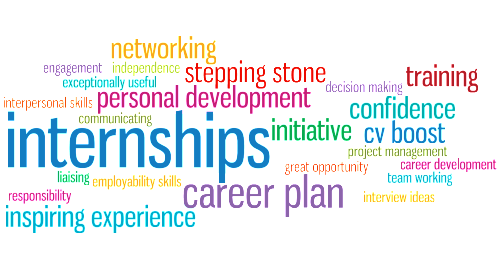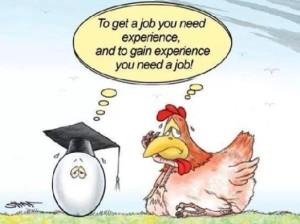Is there such a thing as Professional Loyalty?

This is my first post in quite some time. Please note that I have not been negating my commitment to helping others maximize their potential. I recently conducted a two-day Career Development workshop and a forum where I gave the key-note, that I spent several months preparing for. I am happy to say that the feedback has been outstanding. The ideals and philosophies that I have been sharing on this blog and in my book,
How To Make It From The Classroom To The Cubicle, have been put into practical form. The exciting news is that there are more training workshops and forums already scheduled! Contact me and I will gladly provide details.
Today though, we will talk about an important topic as you consider the pathway to professional success:
Is there such a thing as Professional Loyalty? In government based jobs such as teaching, fire services, law enforcement, etc., it is still common place to see individuals enter and remain for their entire career within the same office or district. However outside of this the story is very different. Gone are the days of entering a job out of school and staying within the same organization or in the same location for an entire career. It still happens but is much more infrequent. Recent graduates and those who are about to enter the workforce must be prepared for this reality, but what about the rest of us?
In a very dynamic economic climate things change rapidly. One day your company and industry can be high flying and the next year management may decide or forced to close up shop. There is also the disturbing trend of massive layoffs or compensation cuts simply to balance the books; which results in employers asking employees to achieve more with fewer resources. The long term employment outlook is being impacted by economic factors that are beyond the control of the employees. Employees now have the responsibility to consider these factors alongside their career advancement aspirations when deciding if they should leave or go. With this in mind, employers may decide to offer promises of future rewards if employees stay loyal, however what should you do?
The answer is not so simple, but here are some assessment criteria that will help you determine whether to stay or go:
Just because others are being let go or are leaving voluntarily does not mean you must do the same.
When people leave, a vacuum is created, meaning that there are things that they previously did that aren't getting done anymore. That means that there are potential opportunities for you to take advantage of. If the premise for leaving is to get more opportunities, then there is reason to stay in a case like this. However, if time is passing by and you are aggressively trying, but not getting access to those opportunities or management has made promises that seem to be indefinite, then it is time to move on.
You were hired to fill a position, with a promise for career growth and things are threatening to become stagnant.
Ask for time frame commitment. We all know that things change especially in the life of a company. Business needs evolve, priorities evolve and management is always trying to keep things aligned. Though context may change, a commitment for employee growth and development should not. As a manager I have learned that when there are no opportunities, make one. In other words management should NOT go back on promises made when it comes to employee advancement. If over a period of time nothing is happening the manager should bring it to their employee's attention so that things can be re-evaluated. However, if after doing so, the attitude and actions do not match promises made, then you know that it is time to go.
Growth can be achieved organically or via transplant.
Just like in botany, there comes a time when decisions have to be made as to whether there is room for growth or if the only opportunities exist elsewhere. It is really up to you as the employee to make this assessment. Very few employers would be pragmatic enough to make this call for you as such a decision is really in the best interest of the employee only. Sometimes the move can be a different role within the same organization. Contextually it is a new job, but consider that the culture, general work environment and the aforementioned economic factors would probably be the similar if not the same.
Fundamentally, loyalty is a two-way street. As an employee, you should be as loyal as the employer is loyal to you. If things are not exactly perfect, but there is constant reassurance from management that they will honor their commitment to you, then that is worthy of holding on to. However, if there is nothing but empty or broken promises and a general apathy to your overall growth, then RUN! Unfortunately in my tenure I have seen many folks stay when they definitely should have left and companies allow promising employees to leave when there was good reason to incentivize their staying.
I will summarize it by saying as long as you have evidence as to why you should stay then stay, but if after an honest assessment you determine that there is no commitment toward your growth AND there are no opportunities for you to take advantage of, then it is time to move on. To simply answer today's question,
yes there is such a thing as professional loyalty; it is a shared responsibility between the employer and employee.
Until next time remember:
as long as you have life you should live it to your fullest potential.
Tags: career,
career development,
Deon,
Deon Duncan,
Deon E Duncan,
Duncan,
How to make it from the classroom to the cubicle,
job search,
loyalty,
self development,
self management,
weekly wisdom  This is my first post in quite some time. Please note that I have not been negating my commitment to helping others maximize their potential. I recently conducted a two-day Career Development workshop and a forum where I gave the key-note, that I spent several months preparing for. I am happy to say that the feedback has been outstanding. The ideals and philosophies that I have been sharing on this blog and in my book, How To Make It From The Classroom To The Cubicle, have been put into practical form. The exciting news is that there are more training workshops and forums already scheduled! Contact me and I will gladly provide details.
Today though, we will talk about an important topic as you consider the pathway to professional success: Is there such a thing as Professional Loyalty? In government based jobs such as teaching, fire services, law enforcement, etc., it is still common place to see individuals enter and remain for their entire career within the same office or district. However outside of this the story is very different. Gone are the days of entering a job out of school and staying within the same organization or in the same location for an entire career. It still happens but is much more infrequent. Recent graduates and those who are about to enter the workforce must be prepared for this reality, but what about the rest of us?
In a very dynamic economic climate things change rapidly. One day your company and industry can be high flying and the next year management may decide or forced to close up shop. There is also the disturbing trend of massive layoffs or compensation cuts simply to balance the books; which results in employers asking employees to achieve more with fewer resources. The long term employment outlook is being impacted by economic factors that are beyond the control of the employees. Employees now have the responsibility to consider these factors alongside their career advancement aspirations when deciding if they should leave or go. With this in mind, employers may decide to offer promises of future rewards if employees stay loyal, however what should you do?
The answer is not so simple, but here are some assessment criteria that will help you determine whether to stay or go:
This is my first post in quite some time. Please note that I have not been negating my commitment to helping others maximize their potential. I recently conducted a two-day Career Development workshop and a forum where I gave the key-note, that I spent several months preparing for. I am happy to say that the feedback has been outstanding. The ideals and philosophies that I have been sharing on this blog and in my book, How To Make It From The Classroom To The Cubicle, have been put into practical form. The exciting news is that there are more training workshops and forums already scheduled! Contact me and I will gladly provide details.
Today though, we will talk about an important topic as you consider the pathway to professional success: Is there such a thing as Professional Loyalty? In government based jobs such as teaching, fire services, law enforcement, etc., it is still common place to see individuals enter and remain for their entire career within the same office or district. However outside of this the story is very different. Gone are the days of entering a job out of school and staying within the same organization or in the same location for an entire career. It still happens but is much more infrequent. Recent graduates and those who are about to enter the workforce must be prepared for this reality, but what about the rest of us?
In a very dynamic economic climate things change rapidly. One day your company and industry can be high flying and the next year management may decide or forced to close up shop. There is also the disturbing trend of massive layoffs or compensation cuts simply to balance the books; which results in employers asking employees to achieve more with fewer resources. The long term employment outlook is being impacted by economic factors that are beyond the control of the employees. Employees now have the responsibility to consider these factors alongside their career advancement aspirations when deciding if they should leave or go. With this in mind, employers may decide to offer promises of future rewards if employees stay loyal, however what should you do?
The answer is not so simple, but here are some assessment criteria that will help you determine whether to stay or go:




